Medical articles
ADHD treatment options?
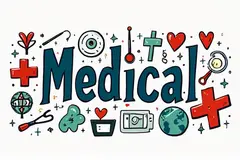 ADHD Treatment Options: A Comprehensive Guide
Attention Deficit Hyperactivity Disorder (ADHD) is a neurodevelopmental condition that affects millions of people worldwide. While there is no one-size-fits-all solution for managing ADHD symptoms, various treatment options are available to help individuals lead fulfilling lives. This article delves into the best... read more...
ADHD Treatment Options: A Comprehensive Guide
Attention Deficit Hyperactivity Disorder (ADHD) is a neurodevelopmental condition that affects millions of people worldwide. While there is no one-size-fits-all solution for managing ADHD symptoms, various treatment options are available to help individuals lead fulfilling lives. This article delves into the best... read more...
Who gets the most pneumonia deaths?
 Pneumonia is a serious respiratory infection that can lead to severe illness and death, particularly among certain demographic groups. Understanding who is most at risk for pneumonia deaths can help in developing targeted prevention strategies and improving public health outcomes.
Who Are Most at Risk for Pneumonia Deaths?
The risk of dying from pneumonia... read more...
Pneumonia is a serious respiratory infection that can lead to severe illness and death, particularly among certain demographic groups. Understanding who is most at risk for pneumonia deaths can help in developing targeted prevention strategies and improving public health outcomes.
Who Are Most at Risk for Pneumonia Deaths?
The risk of dying from pneumonia... read more...
Explain asthma symptoms
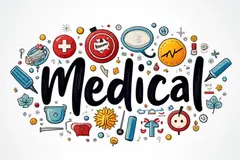 Understanding Asthma Symptoms Today
Asthma is a chronic respiratory condition that affects millions of people worldwide. It involves inflammation and narrowing of the airways, leading to various symptoms such as wheezing, coughing, chest tightness, and shortness of breath. Recognizing these symptoms early can significantly improve management and quality of... read more...
Understanding Asthma Symptoms Today
Asthma is a chronic respiratory condition that affects millions of people worldwide. It involves inflammation and narrowing of the airways, leading to various symptoms such as wheezing, coughing, chest tightness, and shortness of breath. Recognizing these symptoms early can significantly improve management and quality of... read more...
Why do we get nosebleeds?
 What Causes Nosebleeds?
Nosebleeds, also known as epistaxis, can be a common and often distressing occurrence. The causes of nosebleeds are diverse, ranging from environmental factors to underlying medical conditions. Understanding the triggers behind these episodes is crucial for effective management and prevention.
Common Reasons for Nosebleeds
Dry Air:... read more...
What Causes Nosebleeds?
Nosebleeds, also known as epistaxis, can be a common and often distressing occurrence. The causes of nosebleeds are diverse, ranging from environmental factors to underlying medical conditions. Understanding the triggers behind these episodes is crucial for effective management and prevention.
Common Reasons for Nosebleeds
Dry Air:... read more...
Understanding Uterine Prolapse Symptoms
 Understanding and Managing Uterine Prolapse: A Comprehensive Guide
Uterine prolapse, a condition affecting many women, can significantly impact quality of life. This article delves into the symptoms, causes, treatment options, prevention strategies, and daily management tips for uterine prolapse.
Symptoms of uterine prolapse can vary in severity but commonly... read more...
Understanding and Managing Uterine Prolapse: A Comprehensive Guide
Uterine prolapse, a condition affecting many women, can significantly impact quality of life. This article delves into the symptoms, causes, treatment options, prevention strategies, and daily management tips for uterine prolapse.
Symptoms of uterine prolapse can vary in severity but commonly... read more...
What is heart failure?
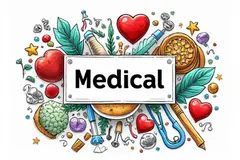 Heart failure, also known as congestive heart failure (CHF), is a condition in which the heart muscle is unable to pump blood effectively throughout the body. This can lead to a buildup of fluid in various parts of the body, causing symptoms such as shortness of breath and swelling in the legs.
Understanding Heart Failure Basics
Heart failure occurs when the... read more...
Heart failure, also known as congestive heart failure (CHF), is a condition in which the heart muscle is unable to pump blood effectively throughout the body. This can lead to a buildup of fluid in various parts of the body, causing symptoms such as shortness of breath and swelling in the legs.
Understanding Heart Failure Basics
Heart failure occurs when the... read more...
What`s the largest gland in the body?
 What Is the Largest Gland in Your Body?
The human body is a complex and intricate system, with numerous organs and glands working together to maintain health and functionality. Among these vital components, one gland stands out as the largest: the liver. This remarkable organ plays an essential role in various bodily functions and deserves attention for its... read more...
What Is the Largest Gland in Your Body?
The human body is a complex and intricate system, with numerous organs and glands working together to maintain health and functionality. Among these vital components, one gland stands out as the largest: the liver. This remarkable organ plays an essential role in various bodily functions and deserves attention for its... read more...
What is a pacemaker?
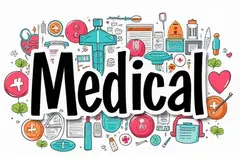 A pacemaker is an electronic device that helps regulate the heart's rhythm. It can be life-saving for individuals with certain types of heart conditions, ensuring their hearts beat at a normal pace and rhythm.
Who Needs a Pacemaker?
Pacemakers are recommended for people who have irregular or slow heartbeats (bradycardia), which can cause symptoms such as... read more...
A pacemaker is an electronic device that helps regulate the heart's rhythm. It can be life-saving for individuals with certain types of heart conditions, ensuring their hearts beat at a normal pace and rhythm.
Who Needs a Pacemaker?
Pacemakers are recommended for people who have irregular or slow heartbeats (bradycardia), which can cause symptoms such as... read more...
Anaphylaxis: definition, triggers, and emergency response
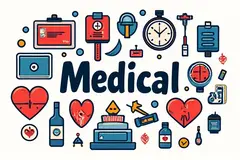 Understanding anaphylaxis is crucial for anyone who may be at risk of severe allergic reactions. This article delves into the definition of anaphylaxis, its triggers, symptoms, and how to respond effectively in emergency situations.
Anaphylaxis: What You Need to Know
Anaphylaxis is a serious, potentially life-threatening condition that occurs when the immune... read more...
Understanding anaphylaxis is crucial for anyone who may be at risk of severe allergic reactions. This article delves into the definition of anaphylaxis, its triggers, symptoms, and how to respond effectively in emergency situations.
Anaphylaxis: What You Need to Know
Anaphylaxis is a serious, potentially life-threatening condition that occurs when the immune... read more...
What does an MRI use for imaging?
 Magnetic Resonance Imaging (MRI) is a powerful diagnostic tool used extensively in medicine to visualize internal structures of the body. This non-invasive imaging technique offers detailed images without using radiation, making it particularly valuable for assessing soft tissues and organs.
What is MRI Used For in Medicine?
MRI plays a crucial role in... read more...
Magnetic Resonance Imaging (MRI) is a powerful diagnostic tool used extensively in medicine to visualize internal structures of the body. This non-invasive imaging technique offers detailed images without using radiation, making it particularly valuable for assessing soft tissues and organs.
What is MRI Used For in Medicine?
MRI plays a crucial role in... read more...
Definition of anemia?
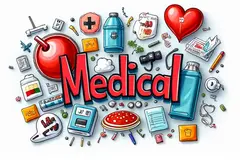 What is Anemia Exactly?
Anemia is a medical condition characterized by a deficiency of red blood cells or hemoglobin in the bloodstream. This deficiency results in reduced oxygen-circulating capacity, leading to various symptoms such as fatigue and weakness.
Understanding Anemia Basics
Hemoglobin: The protein in red blood cells that carries oxygen from your... read more...
What is Anemia Exactly?
Anemia is a medical condition characterized by a deficiency of red blood cells or hemoglobin in the bloodstream. This deficiency results in reduced oxygen-circulating capacity, leading to various symptoms such as fatigue and weakness.
Understanding Anemia Basics
Hemoglobin: The protein in red blood cells that carries oxygen from your... read more...
Can stress cause digestive issues?
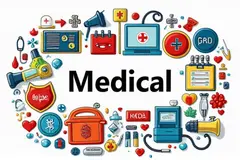 Stress is a common experience in modern life, affecting nearly everyone at some point. However, the impact of stress on your digestive system can be significant and often overlooked. This article explores how stress affects gut health, digestion, and overall gastrointestinal well-being.
How Stress Affects Your Gut Health
The relationship between mental... read more...
Stress is a common experience in modern life, affecting nearly everyone at some point. However, the impact of stress on your digestive system can be significant and often overlooked. This article explores how stress affects gut health, digestion, and overall gastrointestinal well-being.
How Stress Affects Your Gut Health
The relationship between mental... read more...